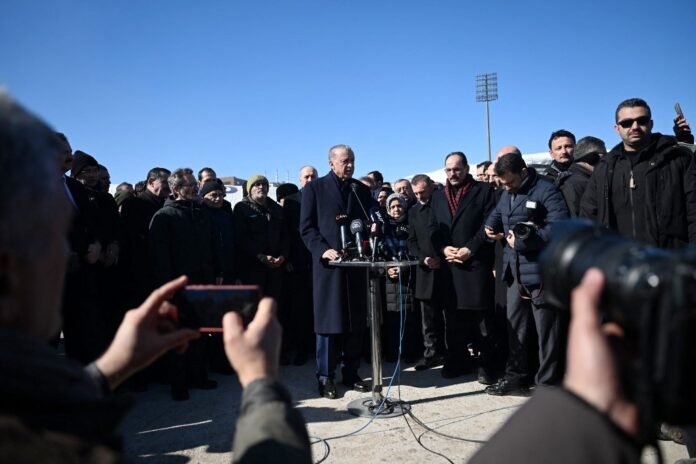
On the anniversary of the February 6 earthquakes that devastated parts of Turkey, the media landscape is under scrutiny for its role and response at a critical time of need, Turkish Minute reported.
The magnitude 7.8 and 7.5 earthquakes affected 11 provinces in the country’s south and southeast on February 6, killing more than 53,000 people in Turkey and leaving millions homeless.
In the aftermath of the earthquakes, there was a flood of reports of “rescue miracles” that, while uplifting, often overshadowed the horrific reality and systemic failures that had contributed to the scale of the disaster.
In Antakya, one of the hardest hit areas, the focus on a few “symbolic places” meant that the wider story of the earthquake’s impact, including the cries for help coming from under the rubble in less visible places, was overlooked. This narrow focus was not only the result of limited resources or logistical challenges but also reflected editorial decisions that favored feel-good stories over critical, investigative journalism that might challenge authorities or expose uncomfortable truths.
The Media and Law Studies Association (MLSA) pointed out the dire consequences of the earthquakes for journalists: “A year has passed since the February 6 earthquakes. 23 journalists have lost their lives. Criticism and news related to disaster management has been heavily censored. On February 8, 2023, Twitter was shut down for 9 hours. Within a month of the earthquake, 4 journalists reporting from around the rubble were detained and 2 arrested. The Radio and Television Supreme Council (RTÜK) imposed a ban and fines on Halk TV, TELE 1 and Fox TV for their broadcasts related to the earthquake. To date, at least 18 journalists have been investigated for ‘disseminating misleading information to the public’ based on their news or social media posts.”
These actions underscore the challenges Turkish journalists and media faced when reporting on the earthquakes.
Critics accuse the Turkish government of having taken almost complete control of the Turkish media following a failed military coup in 2016.
The government closed down hundreds of media outlets and imprisoned scores of critical journalists under the pretext of fighting the coup.
Journalists risk losing their jobs, being harassed by the judiciary or being jailed for even the slightest criticism of the government.
Censorship, arrests and legal action against journalists not only impede the flow of information but also create a climate of fear and self-censorship that severely impairs the media’s ability to serve the public interest.
The reliance on a limited number of sources, the emphasis on “rescue miracles’ and the lack of critical, investigative reporting have contributed to a media environment in which the full extent of the disaster and its impact on Turkish society has not been adequately explored.
This has implications not only for the accountability of those responsible for the failures that led to such a high death toll, but also for the public’s right to information and the overall health of democracy in Turkey.
Turkey ranks 165th in Reporters Without Borders’ 2023 World Press Freedom Index among 180 countries, dropping 16 places and ranking not far from North Korea, which occupies the bottom of the list.














